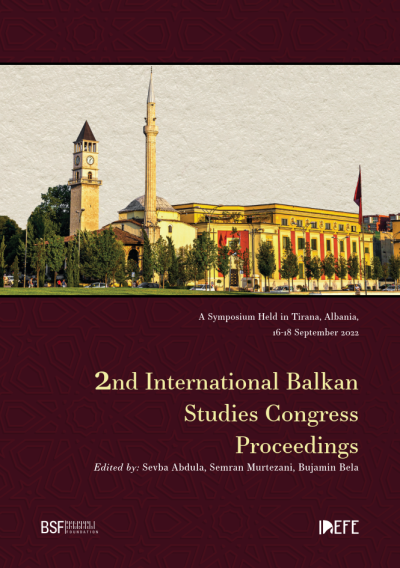Proceedings
Ottoman Patronage of the Orthodox Church in the Balkans and the Emergence of Imperial Thought (1421-1481)
Authors
-
Turan DeğirmenciIstanbul Sabahattin Zaim University
Synopsis
In the 14th and 15th centuries, when the Ottomans followed a policy of conquest in the Balkans, the Orthodox sect was the biggest trump card they possessed against Hungary and Venice, the two dominant powers on land and sea. During this period, the Balkans was divided into many small states and feudal lor-dships. Taking advantage of this political fragmentation, the states of Hungary and Venice pursued expansionist policies in the Balkans and tried to spread Catholicism with the support and encouragement of the Pope alongside their own political and military authorities. Meanwhile, the Ottomans facilitated their superiority in Balkan lands due to their understanding of peaceful conquest and maintaining existing conditions in the lands they conquered by granting privileges and church indepen-dence to the Orthodox clergy and allocating cadres within the state. This study will examine how the Ottomans developed and progressed in the Balkans due to their attitude toward the Catholic Church as a dominant religious power in terms of po-litical influence in Europe and the Balkans and how this situation benefited Ortho-dox Christians in these conquests. The study will attempt to explain the progress of the Ottomans, who included different nations on their way to becoming an empire, and the many Balkan lands that Sultan Murat II inherited from his predecessor, Fa-tih Sultan Mehmet, through the conquest of Istanbul, along with Fatih Sultan Meh-met’s ideas for the empire and the policies he followed to implement them.
Copyright
Copyright (c) 2025 Idefe Publications
License

This work is licensed under a Creative Commons Attribution-NonCommercial 4.0 International License.
Ottoman Patronage of the Orthodox Church in the Balkans and the Emergence of Imperial Thought (1421-1481)
Downloads
Publication Information
-
Publication TypeChapter
-
Volume
-
Pages69-84
-
PublishedJune 7, 2025
-
Series
-
Series PositionProceedings 03
Bela, B. (Ed.). (2025). Ottoman Patronage of the Orthodox Church in the Balkans and the Emergence of Imperial Thought (1421-1481). In 2nd Balkan Studies Congress Proceedings: Vol. Proceedings 03 (pp. 69-84). Idefe Publications. https://doi.org/10.5331/
